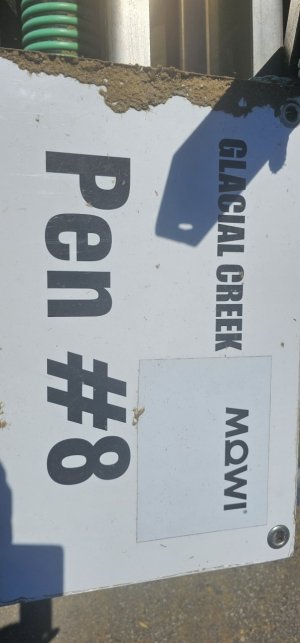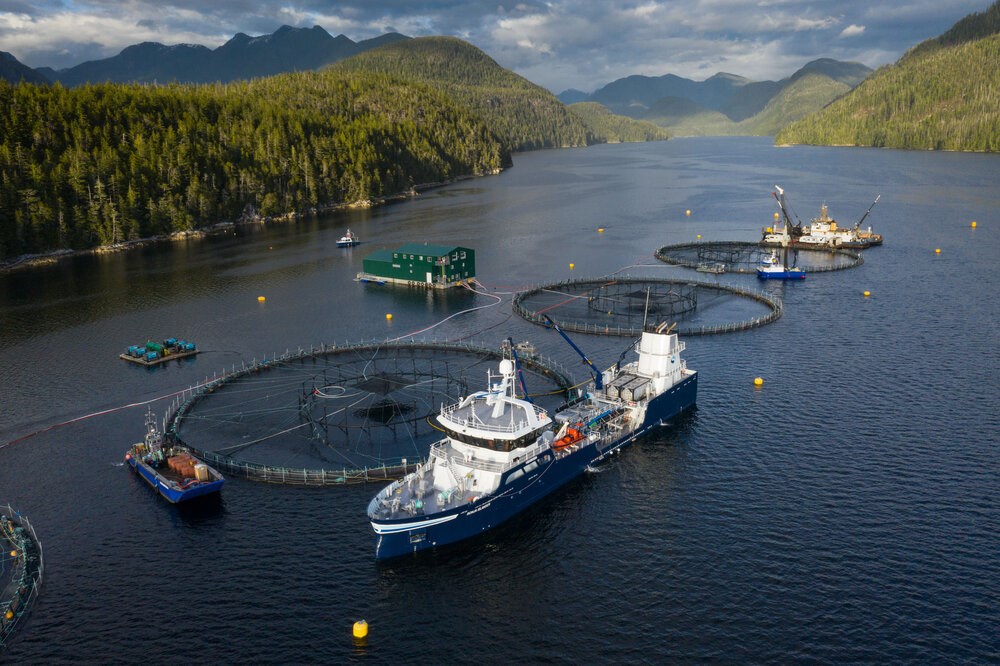John Ivison: A high-stakes fish fight is fracturing Trudeau’s cabinet
An eavesdropper outside next Tuesday’s federal cabinet meeting may well hear the sound of antlers crashing, as ministers clash over a proposal to renew salmon farming licences in British Columbia.
It is understood that Fisheries and Oceans Minister Diane Lebouthillier will put forward a plan to renew the existing licences of open net-pen Atlantic salmon farms for another eight to 10 years, giving them time to transition to systems that reduce interaction between wild and farmed salmon.
Cabinet operates on consensus, but that is unlikely to be forthcoming because there are a number of Lebouthillier’s colleagues, including Energy Minister Jonathan Wilkinson, who subscribe to the belief that the farmed salmon are hurting wild sockeye salmon numbers and want the fish-farm pens out of the water as soon as possible. When Lebouthillier brought forward her draft plan at a cabinet committee just over a week ago, it was rejected by ministers who want a more expeditious solution.
That is likely to leave Prime Minister Justin Trudeau with the dilemma of whether to back his fisheries minister or his environmentalist colleagues.
The decision will reverberate far beyond B.C., given it touches on fundamental economic, environmental and Indigenous issues.
The immediate background is that the open-net pen Atlantic salmon aquaculture business has grown in B.C. to a level where it generates around $2 billion in economic activity and employs more than 8,000 people.
For remote First Nation communities like the Kitasoo Xai’xais in the heart of the Great Bear Rainforest, 500 kilometres north of Vancouver, aquaculture accounts for
more than half of revenues and the bulk of employment.
Yet, Lebouthillier’s predecessor, Joyce Murray, a B.C. MP and lifelong environmentalist, was
firmly committed to closing the province’s 75 or so Atlantic salmon farms. She succeeded with 15 farms in the Discovery Islands on B.C.’s coast by deciding not to renew their licences, over concerns that sea lice from the pens were contributing to the demise of the wild sockeye salmon passing along their migratory route to their own spawning grounds.
In doing so, she ignored the evidence provided to her department by the Canadian Scientific Advisory Secretariat, which co-ordinates peer reviews and scientific advice for the Department of Fisheries and Oceans (DFO). It concluded pathogen transmission from Atlantic salmon farms posed “minimal risk” to the Fraser River sockeye population, which was being impacted by other pressures like climate change, habitat loss, fishing pressures and predation.
Opponents of fish farms like Bob Chamberlin, chair of the First Nations Wild Salmon Alliance, contend that DFO is mired in a conflict of interest and calls for a “truly independent” scientific body to review the impact of salmon farms on marine life. He says there was industry involvement in the Canadian Science Advisory Secretariat studies that resulted in “predetermined outcomes.”
Fish farm opponents point to a March 2023
report from the parliamentary committee on fisheries and oceans that said some additional research that might have had a material impact on the overall risk assessment was “suppressed” and that an independent audit and analysis should be undertaken to determine the accuracy of the scientific advice.
The legitimacy of the science is sure to be a factor in court.
The decision not to renew the Discovery Islands licences is now under judicial review and the government may find itself subject to a hefty compensation award if it is found that the risk to wild salmon stocks was indeed minimal.
After the Discovery Islands decision,
Murray appeared intent on closing down much of the rest of the industry, but she was removed from cabinet last July and replaced by Lebouthillier before she could do so.
Under the new minister, the government remains committed to a transition from open-net pen salmon farming. But it appears Lebouthillier is sympathetic to a more gradual process that uses innovation and barrier technology to minimize interactions with wild salmon over time. In contrast to the 2019 Liberal platform commitment that called for a transition to “a closed containment system” by 2025 — effectively shutting down fish farms — the
minister’s mandate letter does not demand the fish must be taken out of the water. It merely calls for her to work with the province and Indigenous communities to come up with “a responsible transition plan.”
The government has until July 1 to decide whether to review multiple fish farm licences. It may be that the decision falls to the prime minister.
In a letter to Trudeau, Isaiah Robinson, head of economic development for the Kitasoo Xai’xais Nation, emphasized the significant impact the decision will have on the future well-being of remote communities like his.
RELATED STORIES
• John Ivison: The sudden, mysterious muteness of Pierre Poilievre
• John Ivison: The Liberals’ response to the arrest warrants against Israel is mired in typical fudge
Robinson said that since 2019, Kitasoo has been updating its own sustainable development model, “an innovation plan that will balance environmental stewardship, economic development and community resilience.” He said the Kitasoo have continually asserted their rights and title authority on their traditional territory.
“Failure to renew current salmon farming licences will put our nation at risk and will result in economic losses approximated at $2.82 million in economic output, $2.8 million in employment income and 60 jobs,” he said. “We are asking that you renew all salmon farming licences in British Columbia for a minimum of six years.”
Trudeau has already tipped his hand to some extent by shuffling Murray, in large measure because of her inflexibility on this issue.
But the prime minister can ill-afford a split in cabinet or a revolt in caucus, whose B.C. members are predominantly in favour eliminating open-net pens.
He could seek to punt the problem to someone else by issuing two-year licence renewals, but that is unlikely to please anyone: salmon farming cycles are three years in duration.
The prime minister has of late tended to take the path of least resistance. But in this case, it’s far from clear there is one.
jivison@criffel.ca
Twitter.com/IvisonJ
Get more deep-dive National Post political coverage and analysis in your inbox with the Political Hack newsletter, where Ottawa bureau chief Stuart Thomson and political analyst Tasha Kheiriddin get at what’s really going on behind the scenes on Parliament Hill every Wednesday and Friday, exclusively for subscribers.
Sign up here.



 watershedwatch.ca
watershedwatch.ca

 www.timescolonist.com
www.timescolonist.com

 www.coastreporter.net
www.coastreporter.net